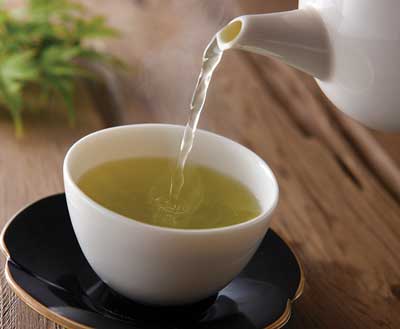Stress Relievers
NUTRACEUTICALS
 You know stress is commonplace in society when you receive an email message with the subject, “Rest Easy—Stress Relief for Your Pet is Here.” The advertisement from Pet Smart was ultimately promoting cozy pet beds, but it caused me to do a quick search for stress relief for pets, resulting in the discovery of supplements for our stressed-out furry friends. MaxxiCalm Calming Aid for Pets declares, “Calming help is not a cure but it can assist you and also your dog to manage situations you both find distressing.” Interestingly, the pet supplement contains “taurine to inhibit the release of adrenaline and have positive effects on dopamine levels; inositol for dealing with panic disorder and depression; chamomile to comfort stress and anxiety and also stomach upset; passion blossom to reduce symptoms of stress and anxiety; L-theanine to naturally soothe; thiamine to help calm anxious pets; and magnesium to lower muscle tension and assist in preserving healthy and balanced nerve transmission.”
You know stress is commonplace in society when you receive an email message with the subject, “Rest Easy—Stress Relief for Your Pet is Here.” The advertisement from Pet Smart was ultimately promoting cozy pet beds, but it caused me to do a quick search for stress relief for pets, resulting in the discovery of supplements for our stressed-out furry friends. MaxxiCalm Calming Aid for Pets declares, “Calming help is not a cure but it can assist you and also your dog to manage situations you both find distressing.” Interestingly, the pet supplement contains “taurine to inhibit the release of adrenaline and have positive effects on dopamine levels; inositol for dealing with panic disorder and depression; chamomile to comfort stress and anxiety and also stomach upset; passion blossom to reduce symptoms of stress and anxiety; L-theanine to naturally soothe; thiamine to help calm anxious pets; and magnesium to lower muscle tension and assist in preserving healthy and balanced nerve transmission.”
The stress-relieving ingredients used in pet supplements can be similar to those used in supplements for humans. Shaklee Stress Relief Complex formula contains “ashwagandha, a traditional herb used to help the body adapt to heightened stress.” It also contains L-theanine, beta-sitosterol, and L-tyrosine. The company’s description states, “Stress can elevate your body’s levels of cortisol, and continuously high levels have been linked to long-term health impacts. Stress Relief Complex was designed to help support your body’s response to stress.”
Here is a rundown of some ingredients to relieve stress, including botanical extracts, L-theanine, phospholipids, and prebiotics.
Phospholipids
Lipogen, Haifa, Israel (lipogenbio.com), launched Lipogen PS+PA in August. Lipogen PS+PA is a patent-protected ingredient for stress management and brain health support. The ingredient is a plant-derived, high-quality blend of phosphatidylserine (PS) and phosphatidic acid (PA). The ingredient has been successfully demonstrated in two separate, controlled clinical trials to alleviate stress response, including the management of cortisol levels and functionality under stress.
Hellhammer et al. (2014) showed that supplementation with Lipogen PS+PA normalized the hyper-responsivity of the hypothalamus–pituitary–adrenal axis to an acute stressor in chronically stressed subjects. The results also showed that it was effective in stabilizing the endocrine response to a stress test (Trier Social Stress Test) in chronically stressed subjects, observing normalization of cortisol. The study examined 75 healthy male subjects who were randomly allocated to one of three groups to receive either a placebo, Lipogen PS+PA 200, or Lipogen PS+PA 400 once a day for 42 days. Compared to the placebo, the daily dose of Lipogen PS+PA 400 was effective in normalizing the endocrine stress response, salivary, and serum cortisol responses in chronically high-stressed subjects, but not in low-stressed subjects.
 Prebiotics
Prebiotics
Schmidt et al. (2015) explored the effects of two prebiotics on the secretion of the stress hormone, cortisol, and emotional processing in healthy subjects. The researchers had previously shown that prebiotics had significant neurobiological effects in rats. The ingestion of prebiotics modulated the processing of information that is strongly linked to anxiety and depression and influenced the neuroendocrine stress response.
The study involved 45 healthy subjects who received one of two prebiotics [fructooligosaccharides (FOS) or Bimuno galactooligosaccharides, (B-GOS)] or a placebo (maltodextrin) daily for 3 weeks. The salivary cortisol awakening response was sampled before and after prebiotic/placebo administration. On the final day of treatment, the subjects completed a computerized task battery assessing the processing of emotionally salient information.
The results showed that consumption of B-GOS produced a decrease in both waking cortisol levels and attentional vigilance toward negative versus positive information, suggesting that B-GOS may have an anxiolytic effect and may reduce stress reactivity in healthy subjects. The study also demonstrated that manipulation of the gut microbiota with B-GOS may alter hypothalamic–pituitary–adrenal axis reactivity and processing. This axis is often dysregulated in individuals suffering from depression and anxiety, impacting effective memory processing as well as having strong directional links with the gut microbiome.
Bimuno from Clasado BioSciences, Lake Success, N.Y. (clasado.com), is a patent-protected galactooligosaccharide mixture produced from dairy lactose utilizing a proprietary enzyme system derived from the probiotic organism Bifidobacteria bifidum. The use of probiotic enzymes (an approach which is unique to Clasado) produces a prebiotic ingredient that is highly selective towards certain types of beneficial gut bacteria. Bimuno’s unique structure, one that is similar to human milk oligosaccharides, produces functionality not demonstrated in other prebiotics.
--- PAGE BREAK ---
Botanical Extracts
A plant extract derived from the controlled cultivation of the Sceletium tortuosum herb, Zembrin from PLT Health, Morristown, N.J. (plthealth.com), has been shown to help promote calm and combat stress. The self-affirmed GRAS and patented botanical ingredient has reported beneficial effects such as decreasing emotional distress, supporting calm, relieving tension, and promoting an optimistic outlook in healthy people. The activities have been demonstrated for the whole extract and also for the isolated key markers present in the extract, providing a rationale for the standardization to selected markers.
In a clinical study, Zembrin was demonstrated to improve both cognitive flexibility and executive function. According to information from PLT Health, a functional MRI study showed that Zembrin had an effect on the part of the brain that responds to threat/stress. In addition to self-affirmed GRAS status in the United States, Zembrin has been granted a license from the Natural Health Products Directorate of Health Canada, allowing Zembrin to be marketed in Canada as support for cognitive functioning in healthy adults.
 Green tea has many reported benefits like weight management, a natural source of caffeine, and antioxidant protection. While catechins such as epigallocatechin (EGCG) are responsible for the antioxidant benefits, L-theanine is an amino acid found in green tea that is believed to have a calming effect on people. It has been shown to stimulate the production of brain waves known as alpha waves, which are often seen when a person is in a relaxed state. It also alters levels of neurotransmitters in the brain such as serotonin and dopamine that can affect moods.
Green tea has many reported benefits like weight management, a natural source of caffeine, and antioxidant protection. While catechins such as epigallocatechin (EGCG) are responsible for the antioxidant benefits, L-theanine is an amino acid found in green tea that is believed to have a calming effect on people. It has been shown to stimulate the production of brain waves known as alpha waves, which are often seen when a person is in a relaxed state. It also alters levels of neurotransmitters in the brain such as serotonin and dopamine that can affect moods.
Applied Food Sciences, Austin, Texas (appliedfoods.com), offers PurTea, an organic green tea extract powder. An excellent functional beverage ingredient, the green tea extract has antioxidants that promote health, caffeine that energizes the mind, and L-theanine to relax the body.
Taiyo International, Minneapolis (taiyointernational.com, nostress.com), a pioneer in the science of green tea, offers Suntheanine L-theanine ingredient. It is not an extract of green tea, but an isomerically pure L-theanine developed by a patented enzymatic fermentation process using the amino acids ethylamine and L-glutamine.
GRAS affirmed Suntheanine is produced via a fermentation process that mimics the natural process in green tea leaves resulting in the 100% pure L-isomertheanine. Human clinical trials have shown Suntheanine may promote an alert state of relaxation without drowsiness. It is protected by more than 40 U.S. and international patents for its various physiological efficacies and L-isomer–specific production processes. According to the company, clinical research suggests that 50–200 mg of Suntheanine naturally stimulates activity in the brain known as alpha waves.
Unno et al. (2013) suggested that theanine intake suppressed the initial stress response in fifth-year university students during pharmacy practice. The 20 subjects were randomly assigned to theanine or placebo (lactose) groups. The subjects took one 200 mg tablet of theanine or placebo twice a day after breakfast and lunch beginning one week prior to the pharmacy practice and continuing for 10 days in the practice period. To assess the anxiety of the subjects, the state-trait anxiety inventory test was carried out before the pharmacy practice. The results suggested that theanine intake had an anti-stress effect on the subjects.
Yoto et al. (2012) showed that L-theanine reduced anxiety and attenuated the blood pressure increase in high-stress response adults. The researchers investigated the effects of orally administered L-theanine or caffeine on mental task performance and physiological activities under conditions of physical or psychological stress in humans. For the study, 14 subjects each underwent three separate trials in which they took either L-theanine + placebo, caffeine + placebo, or placebo only. The results showed that L-theanine significantly inhibited the blood pressure increases in the high-stress response group after the mental tasks were performed. Caffeine had a similar but smaller inhibition of the blood pressure increases. L-theanine also reduced the tension–anxiety scores as compared with placebo intake.
Dairy Hydrolysate
Lactium milk protein hydrolysate from Ingredia Inc., Wapakoneta, Ohio (lactium.com, ingredia.com), contains a bioactive with relaxing properties clinically shown to reduce stress-related symptoms without side effects or toxicity. It acts effectively and naturally on the central nervous system.
The effectiveness of Lactium has been the subject of seven clinical studies conducted between 1999 and 2011 on 394 adult subjects. Messaoudi et al. (2005) investigated the effects of this tryptic hydrolysate on systolic and diastolic blood pressures, heart rate values, and plasma cortisol concentrations in healthy subjects facing successive stress situations. On the basis of blood pressure and cortisol changes, they suggested an anti-stress profile of Lactium in human subjects.
The subjects were randomly assigned to ingest two capsules containing either 200 mg of Lactium or a placebo (bovine skimmed milk powder) three times, 12 hours apart. The results showed a significant decrease of the cortisol concentrations throughout the combined stress tests in those who took Lactium but not in those who took the placebo. Heart rate remained stable between the initial rest period and the stress test in those who consumed Lactium.
Next month’s Nutraceuticals section will showcase alternative protein ingredients.
www.ift.org
Members Only: Read more about ingredients that may help reduce stress online at ift.org. Type the keywords into the search box at the upper right side of the home page.
 Linda Milo Ohr,
Linda Milo Ohr,
Contributing Editor
Denver, Colo.
[email protected]
References
Hellhammer, J., D. Vogt, N. Franz, U. Freitas, and D. Rutenberg. 2014. “A Soy-based Phosphatidylserine/Phosphatidic Acid Complex (PAS) Normalizes the Stress Reactivity of Hypothalamus–Pituitary–Adrenal Axis in Chronically Stressed Male Subjects: A Randomized, Placebo-controlled Study.” Lipids Health Dis. 13: 121.
Messaoudi, M., C. Lefranc–Millot, D. Desor, B. Demagny, and L. Bourdon. 2005. “Effects of a Tryptic Hydrolysate from Bovine Milk AlphaS1–Casein on Hemodynamic Responses in Healthy Human Volunteers Facing Successive Mental and Physical Stress Situations.” Eur. J. Nutr. 44(2): 128–132.
Schmidt, K., P. J. Cowen, C. J. Harmer, G. Tzortzis, S. Errington, and P. W. Burnet. 2015. “Prebiotic Intake Reduces the Waking Cortisol Response and Alters Emotional Bias in Healthy Volunteers.” Psychopharmacology (Berl). 232(10): 1793–1801.
Unno, K., N. Tanida, N. Ishii, H. Yamamoto, K. Iguchi, M. Hoshino, A. Takeda, H. Ozawa, T. Ohkubo, L. R. Juneja, and H. Yamada. 2013. “Anti-stress Effect of Theanine on Students during Pharmacy Practice: Positive Correlation among Salivary Alpha-amylase Activity, Trait Anxiety and Subjective Stress.” Pharmacol. Biochem. Behav. 111:128–135.
Yoto, A., M. Motoki, S. Murao, and H. Yokogoshi. 2012. “Effects of L-theanine or Caffeine Intake on Changes in Blood Pressure under Physical and Psychological Stresses.” J. Physiol. Anthropol. 31(1): 28.


